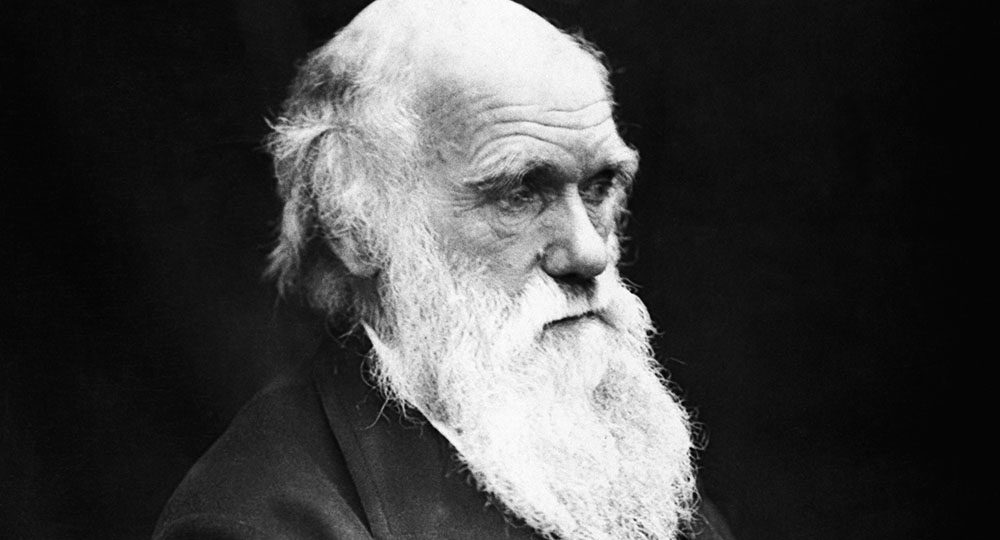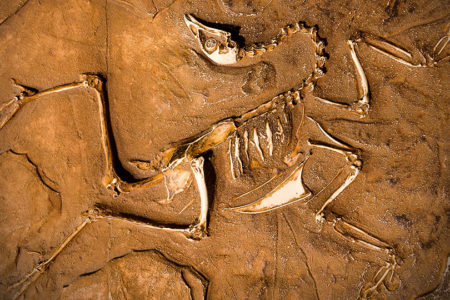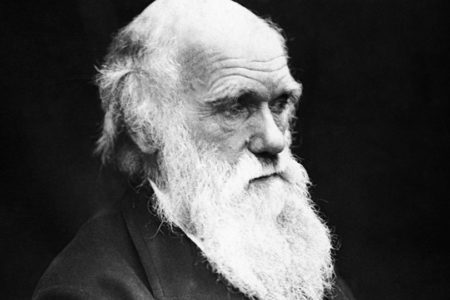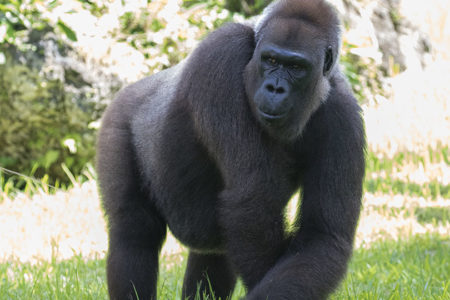Evolution’s Deadly Theology
The Creationist case should not be taught in schools, for, whatever may be said to the contrary, “Scientific Creationism” does move right over into religion.1
How often this cry resounds whenever public discussion turns to the teaching of origins. Somehow evolutionists are never labeled as religionists. Consequently, evolution now dominates the discourse on origins. Since the separation of church and state is an essential policy in America, creation proponents face an uphill battle to even get a hearing in the public square. The playing field does not seem level. After all, it is argued, evolutionary science is neutral and objective, while creation science is merely religious dogma in disguise.
Would the matter change if evolution were classified as a religion? Is evolution more than simply the erroneous teaching that all life on Earth originated through a natural progression from simple life-forms to the more complex? Indeed, evolutionists make it sound as if a higher power were at work, driving the evolutionary process forward. And some treat that unseen force like a god.
Philosopher Mary Midgley aptly demonstrated this point in her book Evolution as a Religion. Her research revealed that most scientific texts on evolution included statements that are not scientific but religious. “They made startling suggestions about vast themes such as immortality, human destiny and the meaning of life.”2 Whether these authors intended to do so or not, their writings combined scientific analyses with spiritual application. This is a mark of religion!Although Midgley has no sympathy for Christianity, she deftly identified the hypocrisy of those who deny the religious nature of evolutionism.
The Source of Evolution’s Theology
We need look no further than the writings of Charles Darwin, the father of modern evolutionary theory, for the source of evolution’s theology. At one time Darwin considered entering the clergy of the Church of England. That path changed radically after he spent five years (1831–1836) sailing and exploring the variety of living creatures on the Galapagos Islands off the coast of Ecuador. In his autobiography, Darwin explained that, at that time, he wrestled with the presence of evil in a world created by God:
There seems to me too much misery in the world. I cannot persuade myself that a beneficent and omnipotent God would have designedly created the Ichneumonidae with the express intention of their feeding within the living bodies of caterpillars, or that a cat should play with mice.3
In 1859 he published The Origin of the Species by Means of Natural Selection, detailing his view that all life came not from the hand of a creator but from the process of survival of the fittest. Thus Darwin disclosed his god. In a letter to a friend he even named it and capitalized it: “my deity [is] ‘Natural Selection.’”4
Darwin expressed his religious views in a letter he wrote as an old man in ill health. “Science has nothing to do with Christ, except in so far as the habit of scientific research makes a man cautious in admitting evidence. For myself, I do not believe that there ever has been any revelation. As for a future life, every man must judge for himself between conflicting vague probabilities.”5
It is no wonder he wrote,
I had gradually come by this time, i.e. 1836 to 1839, to see that the Old Testament was no more to be trusted than the sacred books of the Hindoos….I gradually came to disbelieve in Christianity as a divine revelation….Thus disbelief crept over me at a very slow rate, but was at last complete. The rate was so slow that I felt no distress.6
There is little evidence, if any, that he ever changed his mind.
The path that Darwin traveled is described in Romans 1:
Although they knew God, they did not glorify Him as God, nor were thankful, but became futile in their thoughts, and their foolish hearts were darkened. Professing to be wise, they became fools, and changed the glory of the incorruptible God into an image made like corruptible man—and birds and four-footed animals and creeping things (vv. 21–23).
God has created all people with an innate knowledge about himself. But because mankind is disposed against God, people turn away from Him and worship self-manufactured deities. Humans instinctively worship, but many worship idols.
Darwin’s descent from professing Christianity to pioneering evolution has attracted many followers. What more convenient way to displace the consciousness of the true God than to postulate the god of natural selection.
The Character of Evolution’s Theology
Evolution’s god is the awesome force of nature that supposedly drives all life forward in gradual steps of progress. This deity is impersonal, undemanding, and detached from the constraints inherent in a personal relationship. One does not pray to the god of natural selection. Although textbooks do not define the doctrine of evolutionary theology, its contours and highlights may be seen in three ways.
First, evolution’s theology forms the basis for secular humanism’s dogma as stated in Humanist Manifestos I and II. The first document, written in 1933, begins by exclaiming the need to create a new religion that would fit the coming age.Its first two pillars of faith regard “the universe as self-existing and not created” and teaches that man “is a part of nature and that he has emerged as the result of a continuous process [evolution].”7
Forty years later, in 1973, this document added the need for faith in humanity’s progress despite the emergence of Nazism and other despotic regimes after its first edition in 1933:
Humanists still believe that traditional theism, especially faith in the prayer-hearing God, assumed to love and care for persons, to hear and understand their prayers, and to be able to do something about them, is an unproved and outmoded faith. Salvationism…still appears as harmful, diverting people with false hopes of heaven hereafter. reasonable minds look to other means for survival….No deity will save us; we must save ourselves.8
The humanists’ religion is the faith of evolution, and only the fittest will survive.
Second, Darwin believed that morals originate by the same process as all life: by his god of natural selection. In the struggle to survive, the fittest win merely because they display high moral values, not necessarily right values. Morals are therefore dependent on a situation and have no external basis of right or wrong.
The majority of social scientists view natural selection as the fundamental doctrine guiding their research in morality. Because mankind is simply a “higher animal,” the study of animal behavior translates into equivalency for humans. “The biological sciences continue to throw fresh light on the nature of human beings in their relation with the remainder of the animal world.”9 Such thinking produces situation ethics and a morality based on the moment. No wonder we see bumper stickers that read, “Do not be surprised when our children act like animals if they learn they descended from them.”
Third, some theologians desire to wed evolution to the God of the Bible. Read these words of accommodation:
A biblically inspired vision of the future provides a most suitable framework for both evolutionary science and the religious quest for meaning….rather than attributing to God a rigid “plan” for the universe, evolutionary theology prefers to think of God’s “vision” for it….The God of evolution does not fix things in advance, nor hoard selfishly the joy of creating. Instead God shares with all creatures their own openness to an indeterminate future.10
Once again, God is being made in mankind’s image. Compare the chaotic days of the judges in Israel when “everyone did what was right in his own eyes” (Jud. 21:25).
The Result of Evolution’s Theology
The stakes are high in this battle; eternal life or eternal death are the consequences. Acts 17 describes how the apostle paul fought a similar battle in Athens, the first century’s heart of Greek philosophy and culture. paul visited Athens and saw many temples to multiple gods. He engaged the philosophers at the Areopagus by noting the religiosity of the Athenian people. Shrewdly using the statue to the unknown god, Paul proceeded to explain the scriptural truth about that god—the true God.
However, before he could declare the gospel of Jesus Christ, Paul had to demolish the Greek view of origins. present with paul that day were philosophers from the Stoic and Epicurean schools, whose “two eminent systems of Graeco-Roman philosophy were evolutionary in essence.”11
paul began to dismantle the evolutionary, polytheistic worldviews by stating God’s creative activity three times:
God, who made the world and everything in it, since He is Lord of heaven and earth, does not dwell in temples made with hands. Nor is He worshiped with men’s hands, as though He needed anything, since He gives to all life, breath, and all things. And He has made from one blood every nation of men to dwell on all the face of the earth (vv. 24–26).
Only after constructing a worldview based on the Genesis record of creation could paul present the message about Jesus Christ and eternal judgment.
Satan’s plan is quite ingenious; he has found a way to convince humanity that people are the product of an impersonal, evolutionary force and that they are therefore not responsible to any divine being. The fight is not merely about origins, but about destinies.
Christians must never allow those who argue for evolution to keep the battle in the realm of science. It is ultimately a religious war of faith, values, and worship. Christians worship the God who created all things: “For it is the God who commanded light to shine out of darkness, who has shone in our hearts to give the light of the knowledge of the glory of God in the face of Jesus Christ” (2 Cor. 4:6). We should join with the heavenly beings in praise, saying,
You are worthy, O Lord, to receive glory and honor and power; for You created all things, and by Your will they exist and were created (Rev. 4:11).
ENDNOTES
- Michael Ruse, Darwinism Defended: A Guide to the Evolution Controversies (Reading, MA: Addison-Wesley publishing, 1982), 322.
- Mary Midgley, Evolution as a Religion, rev. ed. (New York: Routledge, 2002), viii.
- Francis Darwin, ed., The Autobiography of Charles Darwin and Selected Letters (New York: Dover publications, 1958), 249.
- Francis Darwin, ed., The Life and Letters of Charles Darwin (New York: Basic Books, 1959), 2:165.
- Ibid., 1:277.
- Darwin, The Autobiography of Charles Darwin and Selected Letters, 62.
- Humanist Manifesto I [www.americanhumanist.org/about/manifesto1.html].
- Paul Kurtz, ed., Humanist Manifestos I and II (Buffalo, NY: prometheus Books, 1973), 13, 16.
- Carl N. Degler, In Search of Human Nature: The Decline and revival of Darwinism in American Social Thought (New York: Oxford University press, 1991), 327.
- John F. Haught, God After Darwin: A Theology of Evolution (Boulder, CO: Westview press, 2000), 190–191.
- Henry M. Morris, The Long War Against God (Grand Rapids: Baker Book House, 1989), 211. His discussion (pp. 211–218) includes plato’s Timaeus, which reveals an early teaching of origins by chance (c. 400 B.C.).








It is tragic to the church and Christianity today that pastors like Schofield and Haddon succumberd to the billions of years that evolution teaches for the age of the earth. Their compromise of the word of God has had an enormous effect on the church to even this day.